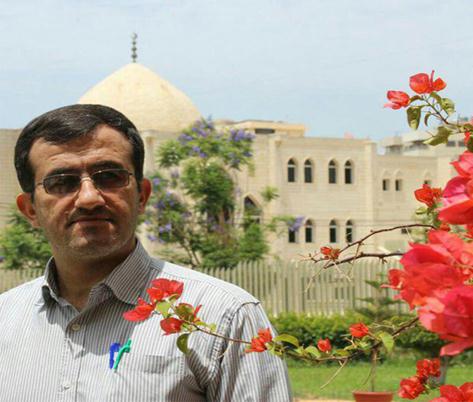Memory Writing Road Is Slippery, Please Be Careful!
Hamid Ghazvini
Translated by Ruhollah Golmoradi
2018-09-22
One of the harm that has always threatened profession of memory writing and oral history is simplistic and carelessly approach to "interview" as the most fundamental part of oral history.
In recent years, with growth of mass media and expansion of cyberspace and increasing interest in historical subjects, we are witnessing activity of the media (written and digital) that through poorly conducted interviews, which apparently are aimed at disseminating unconsidered or less-known memories and information about contemporary history, a wave of misleading, sometimes incorrect and inaccurate contents leads to minds and eyes of the audience.

These interviews often suffer from a variety of injuries, due to scientific and professional weakness of interviewers. For example, sometimes after passing time and variety of events, the narrator mistakes unconsciously in chronology or exact expression of a memory that the interviewer must make him realize about his/her mistake, and because he/she lacks the least information in that field skirt around subject and neglect a gross error; it results in creating a misleading and incorrect document that if no one notice it, it will have irreversible consequences and if they recognize the narrator's error, they would surely have an incorrect judgment about him/her and all his/her narratives.
Also, in some cases because of weak memory of the narrator, many memories are forgotten that the interviewer should help him/her, but ignorance and inability of the interviewer prevents doing so.
In addition, we often see some questions that are basically false and distort the narrator and audience. For example, it is asked, "How was Mr. X behavior with Marxist groups in the Qasr prison?" While the person was not in prison at the time and the narrator had been with him in another prison. Or it is said, "Why was Mr. X in opposition group regarding to story of investigating lack of competence of Abolhasan Bani-Sadr?" while the referred person was not at that time in Parliamentary at all. Or it is asked, "Why was commander of X military command opposed to X operation?" while the person at that time did not have such a responsibility and served elsewhere.
In fact, such mistakes indicate a simplistic look at interview and lack of accountability in producing a historical document.
Interestingly, the same people in their interviews discuss issues and events from the past that in many of them irresponsibility are criticized and reviewed, but they themselves do not act responsibly about what they are doing. Repetition of these errors will, after all, reduce position of such individuals and programs and lead to distrust of the audience.
It should remind of the friends that road of memory writing and oral history is slippery, there is a risk of reversal and falling down, please be careful and move in safe speed.
Number of Visits: 4955
http://oral-history.ir/?page=post&id=8066
